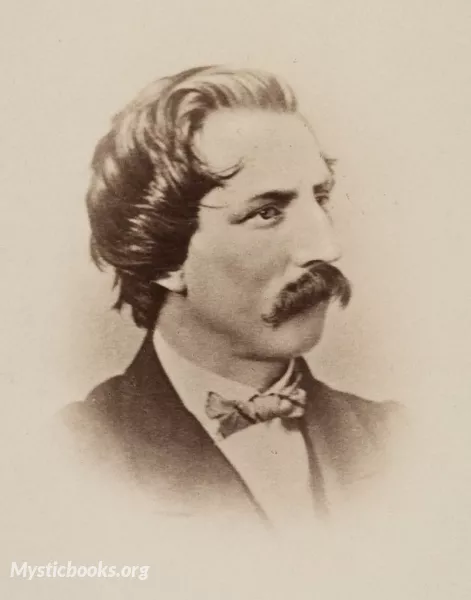
Timeline
Title
Country/Nationality
Artemus Ward
Charles Farrar Browne (April 26, 1834 – March 6, 1867) was an American humor writer, humorist, and lecturer. He is best known for his creation of the character Artemus Ward, a naive and bumbling showman who became one of the most popular figures in American popular culture in the mid-19th century.
Ward was born in Waterford, Maine, and raised in New York City. He began his career as a printer's apprentice, but he soon turned to writing humor for newspapers and magazines. In 1854, he created the character of Artemus Ward, a traveling showman who was full of malapropisms and tall tales. Ward's stories about Artemus Ward were a hit with readers, and he soon became one of the most popular humorists in the country.
In 1861, Ward traveled to England to lecture on his humor. His lectures were a huge success, and he became a celebrity in England. He returned to the United States in 1865, but his health had declined. He died of tuberculosis in 1867 at the age of 32.
Ward's humor was characterized by its simplicity, its absurdity, and its gentle satire. He was a master of the malapropism, and his stories were full of ridiculous characters and situations. Ward's humor was also often self-deprecating, and he was not afraid to poke fun at himself.
Ward's humor was a major influence on the development of American humor. He is often credited with being the "father of American humor," and his work helped to pave the way for later humorists such as Mark Twain and Will Rogers.
Principles
Ward's humor was based on a few key principles. First, he believed that humor should be simple and accessible to everyone. He avoided using complex language or obscure references, and he focused on telling stories that were funny and relatable.
Second, Ward believed that humor should be absurd. He loved to create ridiculous characters and situations that were sure to make his readers laugh. He was also not afraid to poke fun at himself, and he often made himself the butt of his jokes.
Third, Ward believed that humor should be gentle satire. He used his humor to poke fun at social conventions and political figures, but he never did so in a mean-spirited way. He believed that humor was a powerful tool for social commentary, and he used it to make people think about the world around them.
Notable Works
Ward's most famous work is Artemus Ward: His Book (1862). This collection of stories and sketches introduced Artemus Ward to the world, and it quickly became a bestseller. Ward also wrote a number of other books, including Artemus Ward in London (1865) and Artemus Ward's Lecture (1866).
Philosophy
Ward's philosophy of humor was simple: humor should be simple, absurd, and gentle satire. He believed that humor was a powerful tool for social commentary, and he used it to make people think about the world around them.
Death and Legacy
Ward died of tuberculosis in 1867 at the age of 32. His death was a major loss to the world of humor, but his legacy lives on. He is often credited with being the "father of American humor," and his work helped to pave the way for later humorists such as Mark Twain and Will Rogers.
Interesting Facts
- Ward was a lifelong vegetarian.
- He was a member of the American Humorist's Club.
- He was a friend of Mark Twain.
- He was a fan of the theater.
Conclusion
Artemus Ward was a pioneer of American humor. His simple, absurd, and gentle satire helped to shape the way that humor is perceived in the United States. He is a true American original, and his legacy continues to inspire humorists today.
Books by Artemus Ward

The Complete Works of Artemus Ward Part 2, War
Artemus Ward, the beloved humorist who brought laughter to the Civil War, returns in The Complete Works of Artemus Ward Part 2, War By Artemus Ward. In this collection of stories and sketches, Ward takes us on a humorous journey through the Civil Wa...

Complete Works of Artemus Ward Part 4, To California and Return
This volume, 'To California and Return,' is part of the 'Complete Works of Artemus Ward' series, showcasing the writings of Charles Farrar Browne, known by his pen name Artemus Ward. The book captures Browne's distinct satirical voice through letter...